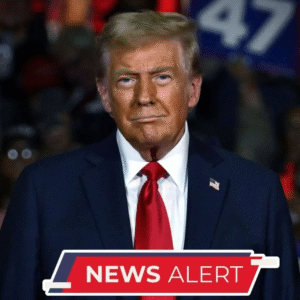Foreign Students and Pro-Palestine Protests: Understanding Trump’s New Order
In May 2025, former President Donald Trump issued a controversial executive order aimed at curbing the participation of foreign students in pro-Palestinian protests on U.S. college campuses. The directive, widely debated across political and academic circles, seeks to restrict or revoke student visas for international students found to be involved in what the order defines as “anti-American or antisemitic demonstrations.” This move comes amid a wave of student-led protests in response to ongoing violence and humanitarian issues in Gaza and Israel, many of which have garnered widespread media attention.
Trump’s order, if enforced, would significantly tighten visa regulations under the U.S. Immigration and Nationality Act, allowing the Department of Homeland Security to investigate and potentially deport non-citizen students who are linked to protests deemed to incite hate, disrupt public order, or threaten national security. Trump has defended the order as a necessary step to protect Jewish students and American values, arguing that many protests have “gone too far” and become a breeding ground for extremism.
Critics, however, have labeled the order as unconstitutional, xenophobic, and a dangerous suppression of free speech. Civil rights groups and university officials argue that the order unfairly targets international students, many of whom are peaceful participants exercising their right to free expression. Organizations like the ACLU have indicated they are preparing legal challenges, emphasizing that peaceful protest is protected under the First Amendment, regardless of immigration status.
Foreign students—who contribute significantly to the American academic and economic landscape—are left feeling uncertain and anxious. Many come from countries with strong political opinions about the Israeli-Palestinian conflict, and for them, participating in demonstrations is often seen as both a personal and moral responsibility. Trump’s policy, if aggressively enforced, could deter future international enrollment and create a chilling effect on campus activism more broadly.
The broader political implications are also notable. Trump’s executive order could play well with segments of his base who view campus protests as unruly or anti-American. At the same time, it risks alienating younger voters, progressives, and immigrant communities. The move further highlights how the Israeli-Palestinian conflict has become a flashpoint in American domestic politics, especially in an election year where Trump is positioning himself as tough on immigration and national security.
In summary, Trump’s new order targeting foreign students involved in pro-Palestine protests reflects a deeper tension between free expression, immigration policy, and national identity. Whether the order survives legal challenges remains to be seen, but its impact is already being felt across campuses nationwide. It underscores the growing complexities of protest in a politically charged era, where global conflicts ripple into American institutions, and where students—regardless of citizenship—find themselves at the center of a contentious debate over rights, responsibility, and belonging.
